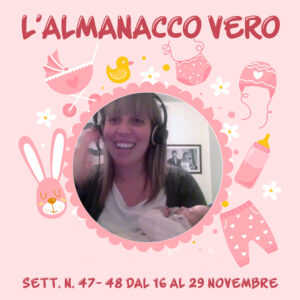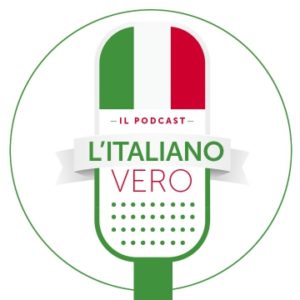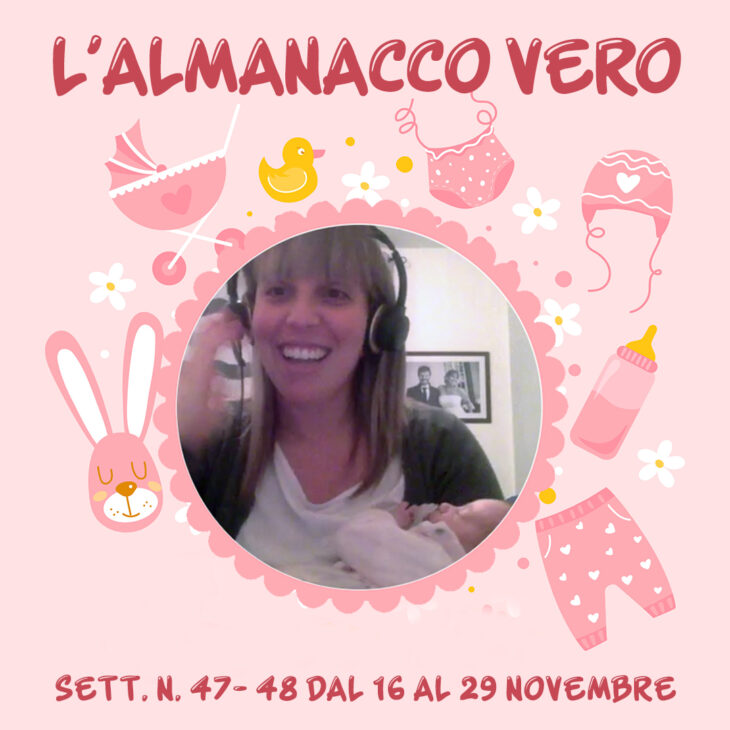
Blog in italiano – tempo di lettura: 3 min
Blog in English – reading time: 3 min
________________
Blog in italiano
Buon lunedì a tutti voi, cari ascoltatori,
oggi con me e Cubo ci sono la nostra neo-mamma Michela e Sonia, la cugina di Cubo che abita in Irpinia (regione geografica in provincia di Avellino) di cui abbiamo fatto la conoscenza nel nostro 4 episodio. Salutiamo e ringraziamo i nuovi ascoltatori e/o sostenitori: Brigitte, Luc, Michael, Camillo e Denise. I quattro avvenimenti che ascolterete oggi hanno tutti, seppur in misura diversa, lasciato un segno nelle vite di noi italiani e non solo!
Sonia ci darà la sua testimonianza molto vera del terremoto che ci fu in Irpinia, il 23 novembre 1980 e che l’Italia ricorda come uno dei più devastanti di sempre. Nonostante siano trascorsi 40 anni e Sonia fosse allora solo una bambina di 11 anni, quei tragici e interminabili 90 secondi e tutto quello che ne seguì nelle ore, nei giorni e nei mesi successivi, sono rimasti indelebili nella sua memoria e ce li racconta con lucidità ed emozione.Ma prima di questa bellissima e toccante testimonianza vi proponiamo tre avvenimenti positivi e certamente interessanti.
16 novembre 1945: Viene istituito l’UNESCO (United Nations Educational Scientific and Cultural Organisation). La sua mission è quella di favorire la collaborazione tra le nazioni in nome della tutela dei diritti e delle libertà fondamentali dell’uomo e sostenere la crescita educativa e culturale dei paesi devastati dalla guerra. Verso la fine degli anni Cinquanta l’UNESCO sposa un’altra fondamentale missione: preservare siti storici e naturalistici preziosi per l’umanità.
Nel 1972 la Convenzione sul Patrimonio dell’Umanità, istituisce un elenco speciale di siti storici e naturalistici, segnalati per valori di “universalità”, “unicità” e “insostituibilità”, indicati nella Convenzione. Attualmente l’Italia vanta il maggior numero di siti patrimonio dell’umanità a parità con la Cina: ben 55 siti!
17 novembre 1869 Viene inaugurato il canale di Suez: Grazie a quest’opera, Mar Mediterraneo e Oceano Indiano vengono collegati da una via d’acqua artificiale, che taglia per oltre 160 km l’istmo di Suez, in Egitto.
I primi tentativi di creare un passaggio risalgono all’epoca dei faraoni, ma è solo nel 1800 che l’intensificarsi dei commerci europei con l’Asia, rende necessaria una via che permetta di evitare la circumnavigazione dell’Africa. L’italia è stato il paese che più ha contribuito alla realizzazione del canale, infatti è stato progettato da 2 ingegneri italiani Pietro Paleocapa della provincia di Bergamo e Luigi Negrelli della provincia di Trento. I francesi ottengono la concessione per gli scavi. I lavori durano oltre dieci anni. L’apertura del canale rivoluziona i trasporti e i commerci tra Europa e Asia, oggi nelle sue acque, su quasi ventimila imbarcazioni, transita ogni anno circa l’8-10% dei commerci mondiali.
17 novembre 1950 Nasce Carlo Verdone Degno erede della grande tradizione della commedia all’italiana, e in particolare del celebre Alberto Sordi (al quale è stato spesso accostato), con le sue pellicole rappresenta, da oltre trent’anni, l’italiano medio con le proprie abitudini e manie. Il successo arriva subito, già con il primo film, Un sacco bello, che nel 1980 gli vale un David di Donatello come “attore emergente”. Seguono numerosi film, tutti molto divertenti. Vi suggeriamo ad esempio Bianco, rosso e Verdone (1981) in cui veste i panni di tre personaggi diversi tra cui un emigrato in Germania alle prese con un lungo viaggio di rientro in Italia in cui ne accadranno di tutti i colori! Verdone è’ anche nel cast de La grande bellezza di Paolo Sorrentino, insignito dell’Oscar al “miglior film straniero” nel 2014.
Prima di chiudere vogliamo ringraziare Sonia per la sua testimonianza certamente drammatica ma anche capace di trasmettere la forza che l’uomo sempre ha nel reagire alle grandi tragedie.
Facciamone tesoro in questi nostri giorni così difficili!
By Sara🎙🇮🇹
►Prova ad ascoltarci con trascrizioni e sottotitoli:
https://www.litalianovero.it/wp/trascrizioni-episodi/
Se le provi migliori e ci sostieni.💪
►Ti piace il nostro podcast? Per favore sostienici al costo di un caffè perché
senza di voi non ci sarebbe il podcast:
https://www.patreon.com/litalianoveropodcast
________________
Blog in Inglese
Happy Monday to all of you, dear listeners,
today with me and Cubo are our new mother Michela and Sonia, Cubo’s cousin who lives in Irpinia (geographical region in the province of Avellino). We have already met her in our 4th episode. We greet and thank the new listeners and/or supporters: Brigitte, Luc, Michael, Camillo and Denise.
The four events that you will hear today have all, albeit to different degrees, left a mark in the lives of us Italians and beyond!
Sonia will give us her very true testimony of the earthquake that occurred in Irpinia on November 23, 1980 and which Italy remembers as one of the most devastating ever. Although 40 years have passed and Sonia was then only an 11 year old girl, those tragic and interminable 90 seconds and all that followed in the hours, days and months that followed, remained indelible in her memory and she tells us about them with clarity and emotion.
But before this beautiful and touching testimony we propose three positive and certainly interesting events.
November 16, 1945: UNESCO (United Nations Educational Scientific and Cultural Organization) is established. Its mission is to favorire la collaborazione tra le nazioni (foster collaboration between nations) in the name of the tutela dei diritti e delle libertà (protection of fundamental human rights and freedoms) and to support the crescita educativa e culturale (educational and cultural growth) of countries devastated by war. Towards the end of the 1950s, UNESCO embraced another fundamental mission: preservare siti storici e naturalistici preziosi per l’umanità (to preserve historical and naturalistic sites that are precious to humanity).
In 1972 the Convenzione sul Patrimonio dell’Umanità (Convention on the World Heritage Site) establishes a elenco speciale (special list) of historical and naturalistic sites, marked for the values of “universality”, “uniqueness” and “irreplaceable”, indicated in the Convention. Italy currently boasts the largest number of world heritage sites on par with China: 55 sites!
November 17, 1869 The Suez Canal is inaugurated: Thanks to this project, the Mediterranean Sea and the Indian Ocean are connected by an artificial waterway, which cuts through the Isthmus of Suez in Egypt for over 160 km. The first attempts to create a passage date back to the time of the pharaohs, but it was only in the 1800s that the intensification of European trade with Asia required a way to avoid the circumnavigation of Africa. Italy was the country that contributed most to the construction of the canal, in fact it was designed by two Italian engineers Pietro Paleocapa from the province of Bergamo and Luigi Negrelli from the province of Trentino. The French obtain the concession for the excavations. The works lasted over ten years. The opening of the canal revolutionizes transport and trade between Europe and Asia. Today, around 8-10% of world trade passes through its waters every year on almost twenty thousand boats.
November 17, 1950 Carlo Verdone is born. Worthy heir of the great tradition of Italian comedy, and in particular of the famous Alberto Sordi (to whom he has often been compared), with his films he has represented, for over thirty years, the average Italian with their habits and manias. Success comes immediately, already with his first film, Un sacco bello (Fun is Beautiful), which in 1980 earned him a David di Donatello as an “emerging actor”. Numerous films follow, all very funny. For example, we suggest Bianco, Rosso and Verdone (1981) in which he plays the role of three different characters including an emigrant to Germany struggling with a long journey back to Italy in which all kinds of things will happen! Verdone is also in the cast of La grande bellezza (The Great Beauty) by Paolo Sorrentino, awarded the Oscar for “best foreign film” in 2014.
Before closing, we want to thank Sonia for her testimony which is certainly dramatic but also capable of transmitting the strength that man always has in reacting to great tragedies.
Let’s treasure it in these difficult days of ours!
By Kevin (ItalianRocks)
►Try listening to us with transcripts and subtitles:
https://www.litalianovero.it/wp/trascrizioni-episodi/
If you try them you improve and support us.💪
►Do you like the podcast? Please support us at the cost of a coffee
without you there would be no podcast:
https://www.patreon.com/litalianoveropodcast
 Settembre 9, 2019
Settembre 9, 2019 24 min
24 min Luglio 29, 2019
Luglio 29, 2019 13 min
13 min Luglio 15, 2019
Luglio 15, 2019 24 min
24 min Luglio 1, 2019
Luglio 1, 2019 15 min
15 min Giugno 17, 2019
Giugno 17, 2019 21 min
21 min Maggio 30, 2019
Maggio 30, 2019 29 min
29 min Maggio 9, 2019
Maggio 9, 2019 21 min
21 min Aprile 30, 2019
Aprile 30, 2019 28 min
28 min Aprile 17, 2019
Aprile 17, 2019 15 min
15 min Aprile 10, 2019
Aprile 10, 2019 24 min
24 min Aprile 3, 2019
Aprile 3, 2019 24 min
24 min Gennaio 26, 2020
Gennaio 26, 2020 21 min
21 min Gennaio 12, 2020
Gennaio 12, 2020 20 min
20 min Dicembre 29, 2019
Dicembre 29, 2019 24 min
24 min Dicembre 15, 2019
Dicembre 15, 2019 21 min
21 min Dicembre 1, 2019
Dicembre 1, 2019 12 min
12 min Novembre 17, 2019
Novembre 17, 2019 min
min Novembre 3, 2019
Novembre 3, 2019 20 min
20 min Ottobre 20, 2019
Ottobre 20, 2019 14 min
14 min Ottobre 7, 2019
Ottobre 7, 2019 9 min
9 min Settembre 23, 2019
Settembre 23, 2019 33 min
33 min Gennaio 9, 2024
Gennaio 9, 2024 6 min
6 min Dicembre 2, 2022
Dicembre 2, 2022 31 min
31 min Ottobre 8, 2022
Ottobre 8, 2022 18 min
18 min Dicembre 25, 2021
Dicembre 25, 2021 1 min
1 min Settembre 18, 2021
Settembre 18, 2021 21 min
21 min Agosto 14, 2021
Agosto 14, 2021 17 min
17 min Maggio 4, 2020
Maggio 4, 2020 32 min
32 min Aprile 12, 2020
Aprile 12, 2020 41 min
41 min Agosto 26, 2019
Agosto 26, 2019 18 min
18 min Agosto 12, 2019
Agosto 12, 2019 11 min
11 min Giugno 5, 2019
Giugno 5, 2019 9 min
9 min







Leave a Comment